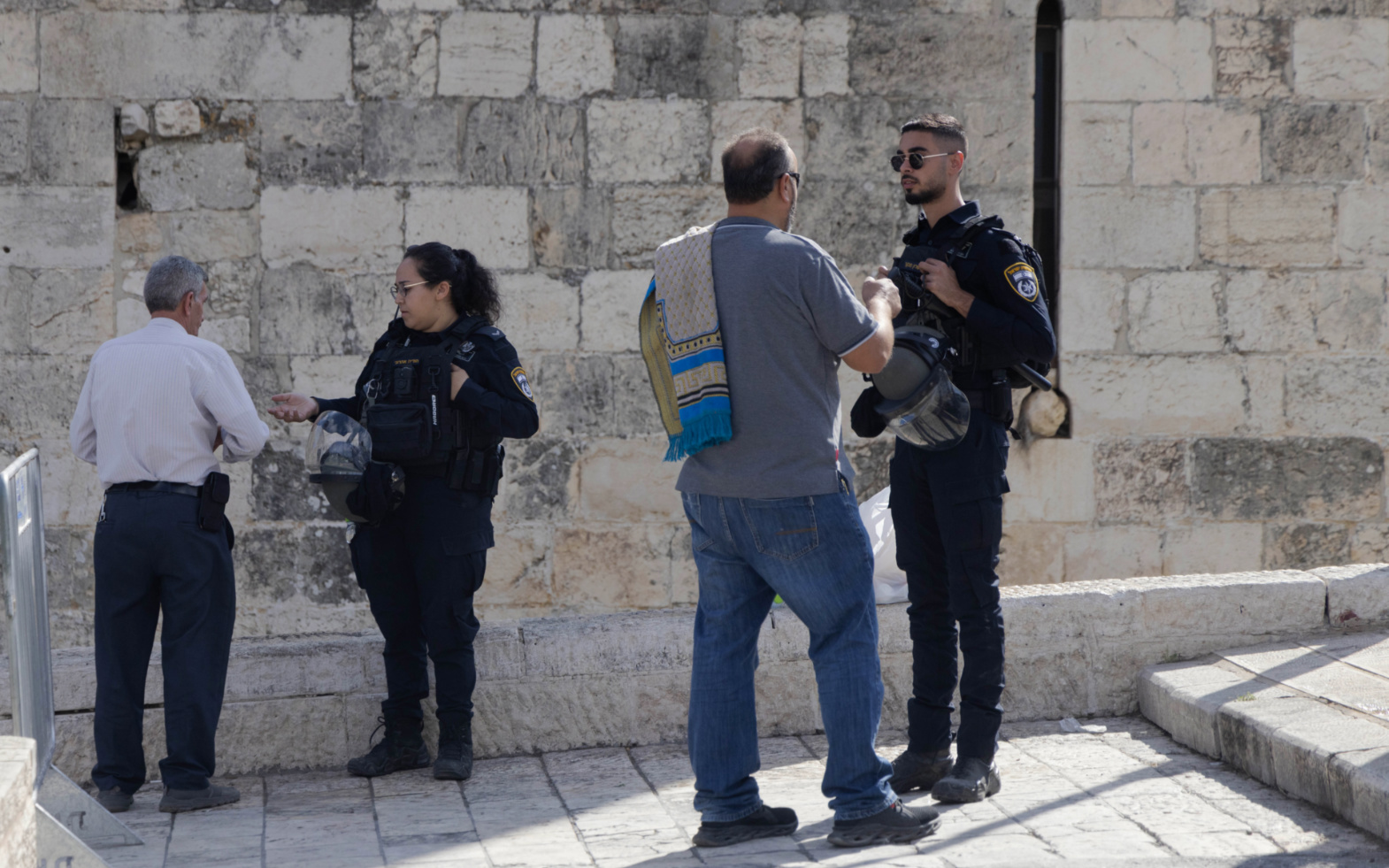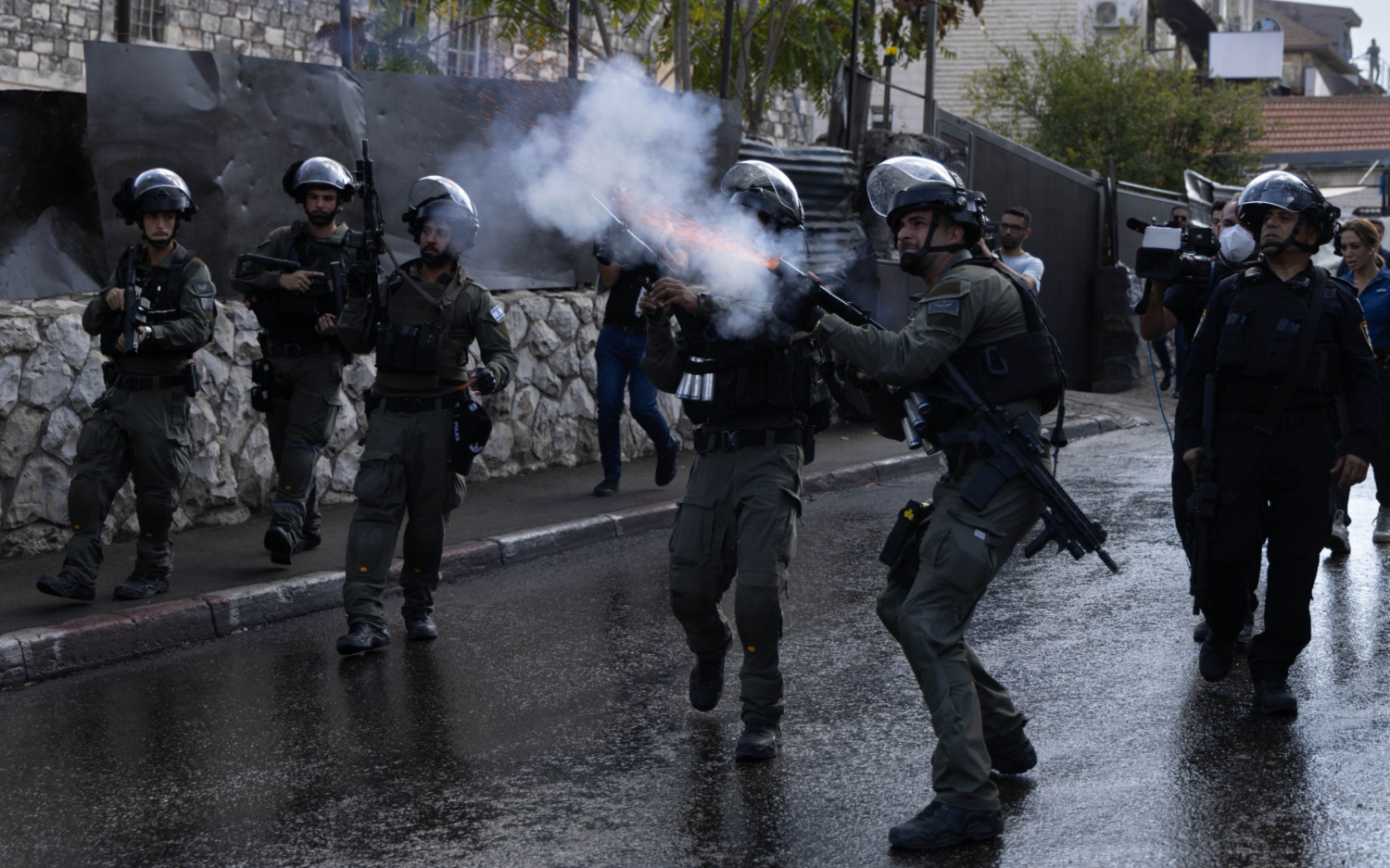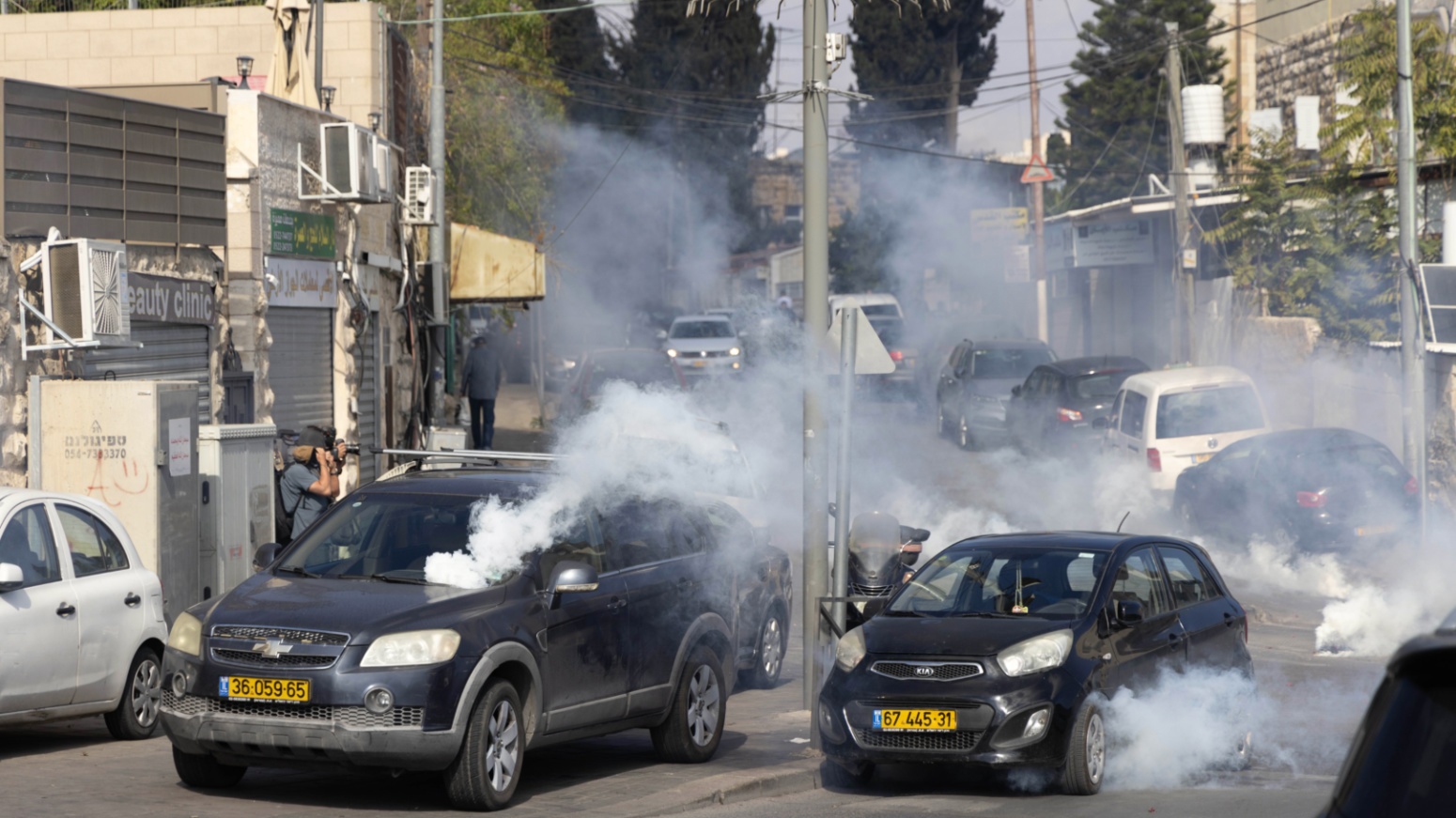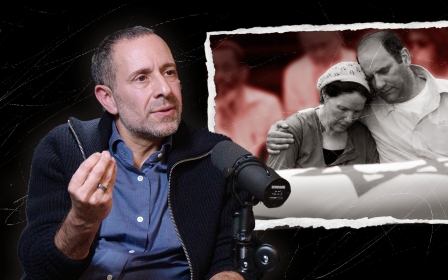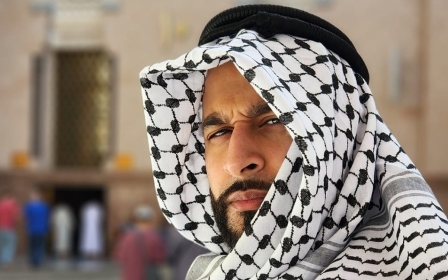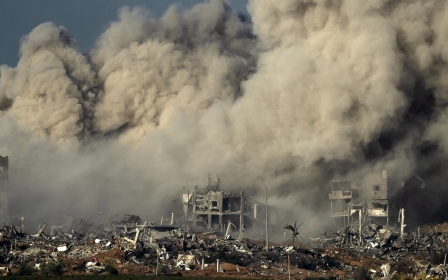Israel-Palestine war: Under the cover of war, Israeli forces impose restrictions on Al-Aqsa prayers
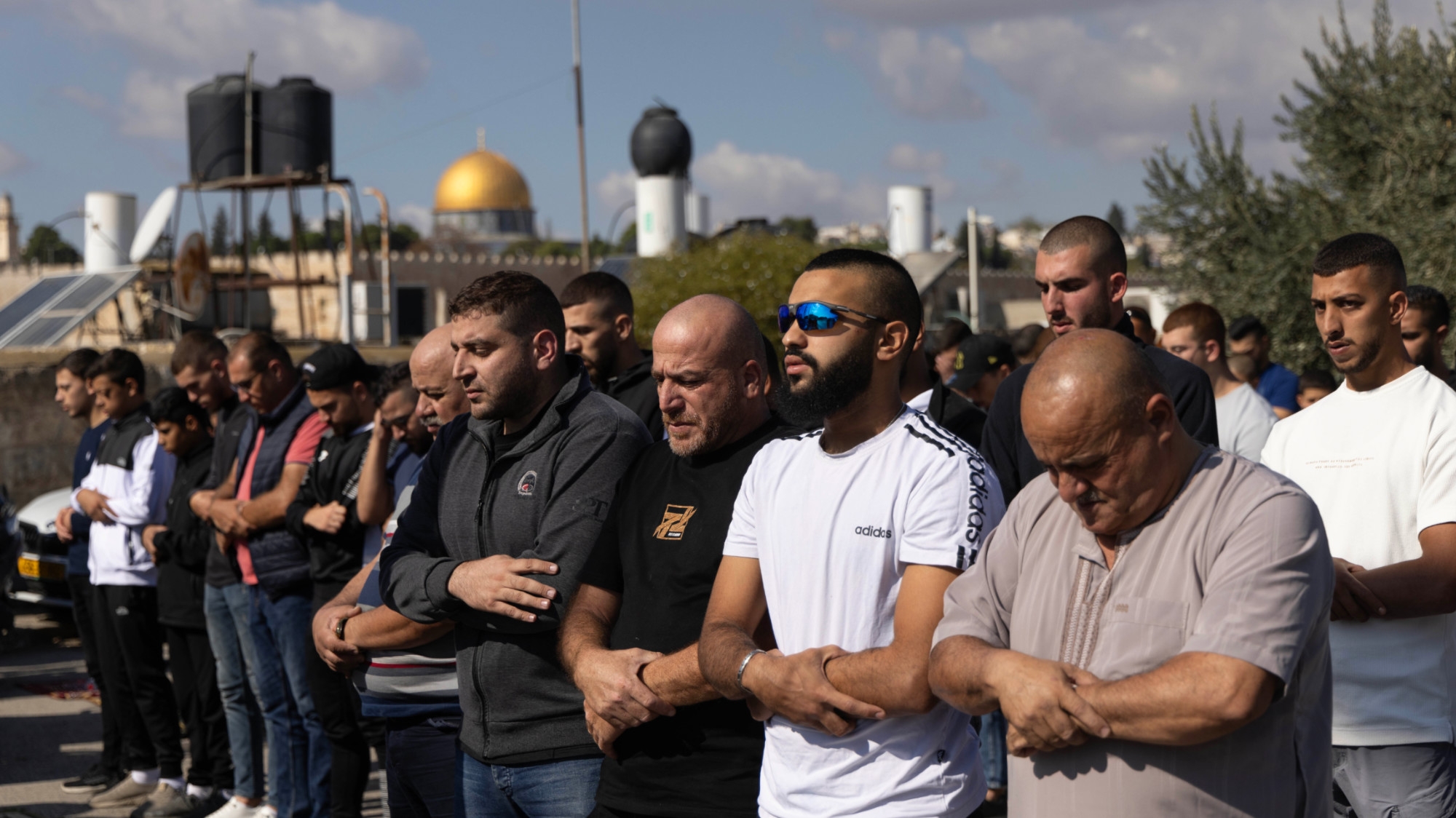
Scenes of worshippers being prevented by Israeli forces from praying at Jerusalem's Al-Aqsa Mosque have become commonplace since 7 October.
The holiest Muslim site in Palestine usually draws tens of thousands of faithful for prayers every Friday, but seemingly arbitrary restrictions on who can enter the compound mean protests regularly erupt at the site, as worshippers are refused entry.
Over the past few weeks, Israeli troops have fired tear gas on Palestinians attempting to pray in the streets surrounding Al-Aqsa and attacked some journalists covering the events.
“They don’t let us in, oppress us, and hit us,” said Mohammad Salaymeh, an 18-year-old man who has not been able to pray at Al-Aqsa since the beginning of the war.
Jihad Taha, 47, who was also barred from going in on Friday, said the restrictions are part of a wider campaign against the Palestinian residents of Jerusalem.
New MEE newsletter: Jerusalem Dispatch
Sign up to get the latest insights and analysis on Israel-Palestine, alongside Turkey Unpacked and other MEE newsletters
“The goal is to put pressure on residents of the Old City in general, and the residents of Jerusalem in general,” he said.
While young men are more likely than others to be stopped, they have not been the only targets.
Bassima Zaidan, a 57-year-old woman who walked from the Jerusalem neighborhood of Ras al-Amud to reach the mosque, said she was turned back by police officers after waiting for 30 minutes.
She said he told her to: "Go back, return to Ras al-Amud."
The prayers, which usually see an average of 50,000 worshippers in and around the mosque, only had around 4,000 people this week.
“There are extremely tight restrictions to prevent the worshippers from coming in,” Mustafa Abu Sway, a member of the Islamic Waqf Council in Jerusalem, told Middle East Eye.
“They are not letting young people come in, for example, alongside people who are 80 years old sometimes. But it is very dependent on the individual police officer that has the authority.”
The Islamic Waqf, or religious endowment, is a Jordanian-appointed organisation in charge of the control and management of Islamic sites in Al-Aqsa’s religious compound.
Follow Middle East Eye's live coverage of the Israel-Palestine war
They have often spoken out against Israel’s increasing pressure on the mosque and its surrounding area.
Many Muslims fear that Israel will use the tumult of the ongoing war to implement a lasting change to who controls the holy site, which Jews refer to as the Temple Mount.
Abu Sway worries the situation may be exploited to implement long-term restrictions on the compound, adding that the Waqf will “never accept such circumstances".
These restrictions on Muslim prayers in the Old City coincide with growing pressure on the Armenian Quarter of Jerusalem.
There, the Armenian Christian community claims to be facing an “existential threat” following a murky and secretive deal that could see some 25 percent of the quarter sold to Israeli settler communities.
Ever since the start of the current war in Gaza, Israel has placed heavy restrictions on worshippers wishing to reach the Al-Aqsa compound, setting up many checkpoints and not allowing those who don't live in Jerusalem to enter.
Increased violence has also been seen in the West Bank, with Israeli settler and army attacks killing over 170 Palestinians, and in East Jerusalem where police forces tightened restrictions on the movement of people.
The latest conflict started when a Hamas-led assault on Israel killed around 1,200 Israelis.
Israel then heavily bombarded Gaza and launched a ground invasion, killing over 11,000 Palestinians including at least 4,500 children.
Despite the increasing restrictions at Al-Aqsa, many Palestinians, such as Zaidan, say they will keep trying to access their religious sites.
For them, the site is just as much a symbol of their struggle against Israeli occupation, as it is a revered spiritual site.
“My soul is for Al-Aqsa, my blood is for Al-Aqsa,” Zaidan said.
Middle East Eye delivers independent and unrivalled coverage and analysis of the Middle East, North Africa and beyond. To learn more about republishing this content and the associated fees, please fill out this form. More about MEE can be found here.


